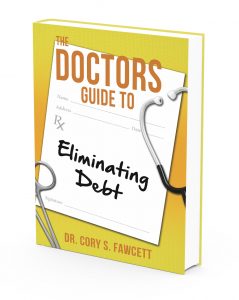I am frequently asked the following question: “Should I pay off my student loans before I put money aside to invest in the stock market?” The person asking this quick and simple question is looking for a yes or no answer. The problem I am faced with is there is not enough information in the question to give a proper answer. Therefore, I say, it depends.
It depends on how the debt sits in your overall financial picture. If you are drowning in debt and struggling each month to get by, then the first step must be to restore a workable balance. There are more than financial ramifications to overwhelming debt. Arguments over finances are the leading cause stated for divorce. Burnout and suicide are both linked to overwhelming debt. In this situation, all efforts need to go toward debt elimination, until balance and breathing room are re-established—even to the extreme of stopping all 401(k) or other retirement investing until balance is restored. In the investment world, that’s heresy. You should be maxing out your 401(k), shouldn’t you? Not if you are seriously out of balance and at risk of drowning in debt.
This decision should be made with the same urgency you would use if the house in this picture was yours. My wife and I were recently in Hawaii and ran across this building that was threatened by lava but survived. If you were in this building when the lava was approaching, everything short of running for your life would be unimportant. All efforts go into saving your life until you know the building survived. Then, tomorrow you can think about painting the place, if it is still there. You must save your life first; everything else can wait.
If you feel your debt is coming down on you like this lava, do everything in your power to eliminate the debt, or at least bring it down to a level you think is not threatening your wellbeing.
If, on the other hand, debt is not overwhelming your finances, then you can take a more balanced approach. You may be able to pay down debt ahead of schedule and at the same time make this year’s maximum retirement plan contribution. Most doctors are in a position to do both, if their lifestyle spending is also in balance.
Overemphasis on debt repayment leaves too little for the rest of your needs. Underemphasis, though, causes the same effect from runaway interest payments.
If debt feels like a problem, pick up a copy of my book “The Doctors Guide to Eliminating Debt” and get yourself back into a position that no longer feels threatening.


